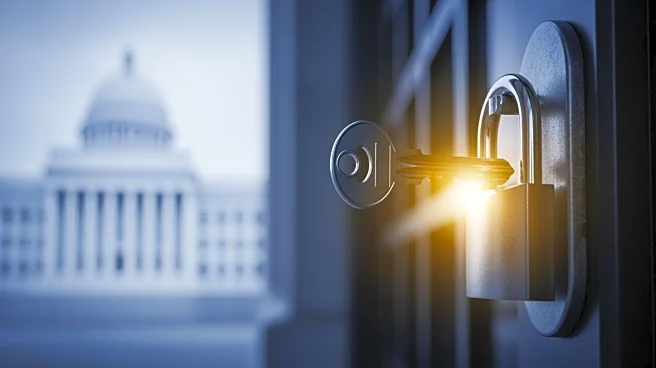What's Happening?
The House of Representatives has passed a bill to reopen the government after a 43-day shutdown. The bill, expected to be signed by President Trump, directs federal employees to return to work. The shutdown, referred to as the 'Democratic shutdown' by some
agencies, has caused significant disruption across various federal departments. The passage of the bill marks a temporary resolution to the funding lapse, though the timeline for resuming paychecks and back pay remains unclear.
Why It's Important?
The reopening of the government is crucial for restoring normal operations across federal agencies, impacting millions of workers and services nationwide. The shutdown highlighted partisan tensions and the challenges of reaching bipartisan agreements on funding. The resolution may provide temporary relief but underscores the need for long-term solutions to prevent future shutdowns. The situation affects public trust in government and the ability of federal agencies to deliver essential services.
What's Next?
With the government reopening, attention will shift to ensuring employees receive back pay and resuming normal operations. The shutdown's impact on public services and employee morale may prompt discussions on improving budgetary processes and preventing future shutdowns. Political leaders may face pressure to address underlying issues that led to the shutdown, including partisan divisions and funding disagreements.
Beyond the Headlines
The shutdown and its resolution highlight broader issues of governance and political polarization in the U.S. The use of partisan language by federal agencies during the shutdown raises questions about neutrality and the role of government communication. The situation may influence future legislative strategies and public perception of political leaders.















